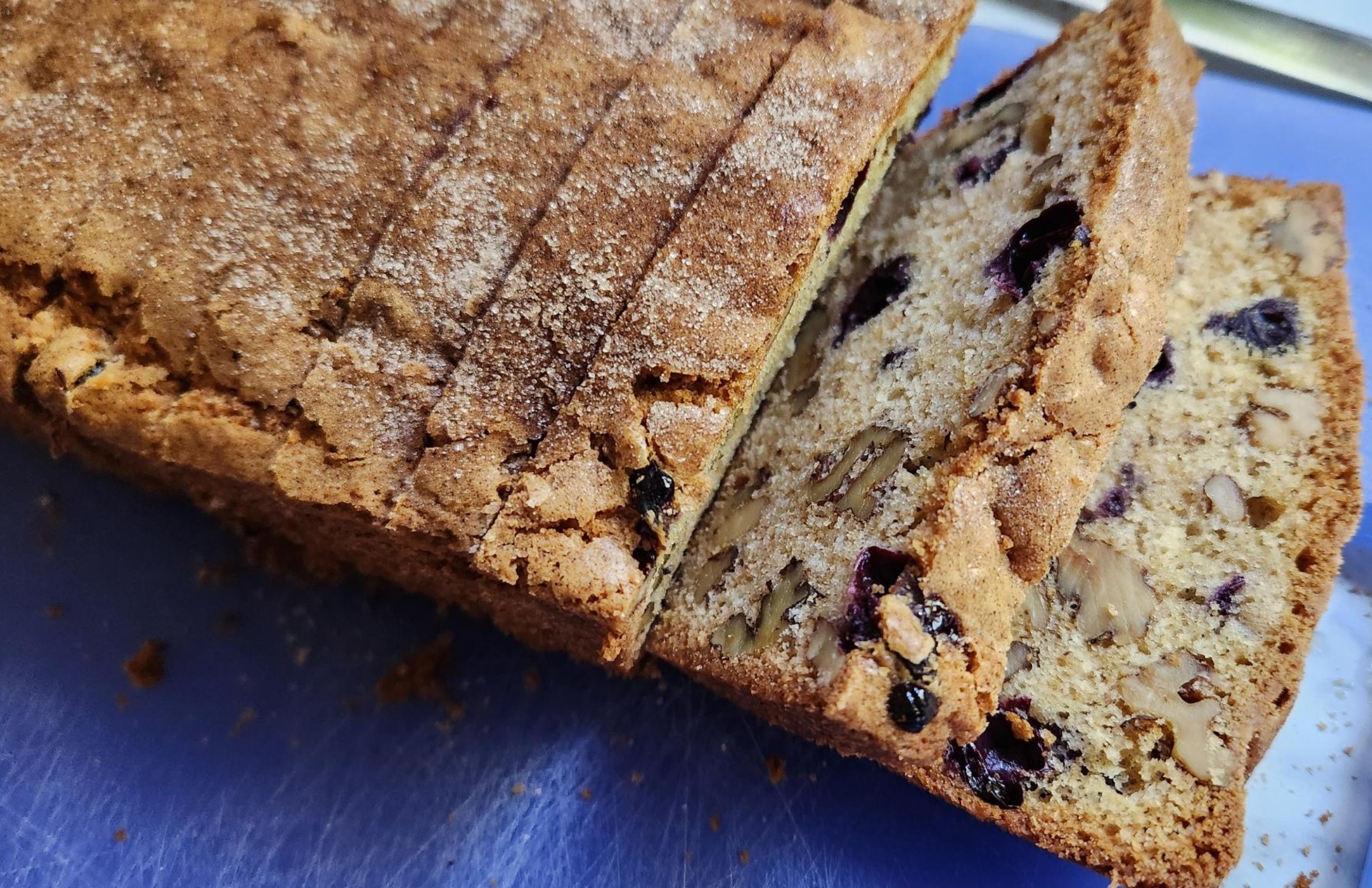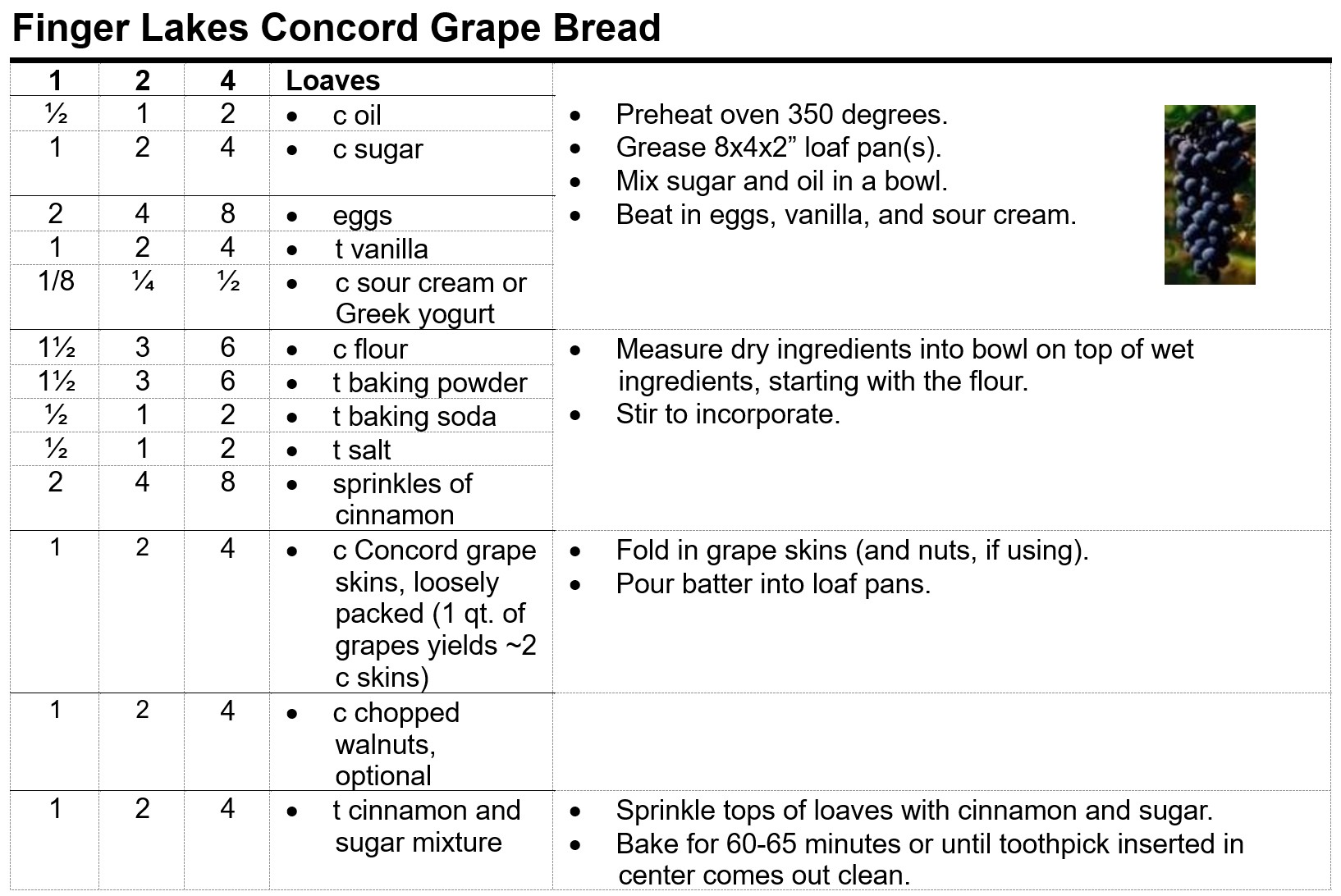- Details
- Written by: Tracey Kiff-Judson
- Category: Blog
Happy Poetry Friday! Please visit our host, the incomparable Tabetha Yeatts at The Opposite of Indifference for a brave poetry zine and this week’s roundup!
Just a short post this week, as I am trying to wrap up a few pieces before the 2025 SCBWI conference in NYC next weekend. Is anyone else attending? If so, I would love to see you there and say,” Hello!”
This week, my “pruning” got off to a slow start. I identified six cookbooks to donate. I have many more, so that project has just begun. I am wondering if seven copies (mostly different editions) of The Joy of Cooking is too many? Perhaps.
We had our first major snowfall of the year in CT this week, and I enjoyed a hike in the woods just before sunset.

This prickly, little burdock caught my eye. It seemed to be waiting patiently, its little hooks buried under a drum major's hat of snow, dreaming of spring’s passing rabbit.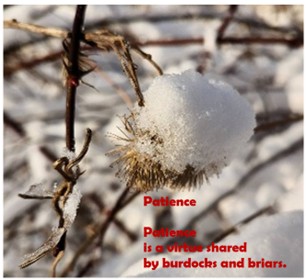
Patience
Patience
is a virtue shared
by burdocks and briars.
© Tracey Kiff-Judson, draft 2025
- Details
- Written by: Tracey Kiff-Judson
- Category: Blog
You wonderful Poetry Friday bloggers so inspired me with your choices of a guiding “One Little Word” (OLW) in the past year, that I thought I might give it a shot. One mousey, little word has been gnawing at my subconscious for the past few weeks. Rather than me choosing the word, this word has insisted upon being my OWL.
PRUNE
Pretty cool, huh?!
Ok, bear with me.
My primary hope for my little word “prune” is to find ways to lighten the load of stuff that weighs down our home. From the attic to the basement, we have more stuff than we will ever need or use. Most of it lies neatly tucked away in bins or closets, out of sight but never entirely out of mind. It waits for that just-in-case someday that has yet to arrive. While I won’t go full Marie Kondo (‘cause who has that kind of energy?), I do hope to do more with less.
 image source: How to Fold Clothes to Save Space (Using Marie Kondo Folding Method)
image source: How to Fold Clothes to Save Space (Using Marie Kondo Folding Method)
Total Garbage by Edward Humes also inspired me to try to reduce the amount of plastic in my life.
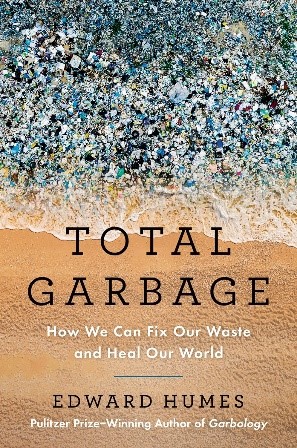
Humes says we each eat up to one credit-card-worth of plastic every week. Some people eat more or less, depending on their circumstances, but no one is exempt from compulsory plastic ingestion. Eliminating plastic is nearly impossible, but using less is definitely achievable. I called Whole Foods last week and asked if they would let me bring my own glass containers for their bulk items. They said, “No,” but I have not given up. In the coming months, I will post more about my progress on reducing my plastic consumption.
And what good is pruning if I continue to acquire more? It is tempting to toss a few extra items into that virtual shopping cart, but this year I resolve to ask myself if every purchase is necessary.
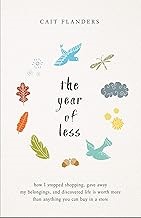
In The Year of Less, Cait Flanders describes how she got rid of 70% of her belongings and bought only consumables (groceries, toiletries, and gas) over a period of 12 months. Now that’s a challenge!
Then there is my writing, which could always benefit from significant pruning! 😊 Culling through my idea lists and resource lists, I may be able to spruce up some old ideas and discard those that don’t shine.
Hmmm, what about pruning unhealthful emotions? Although this may be a lofty goal lacking a solid strategy, I would like to worry less. Worry is rarely a productive emotion unless it inspires useful action, so why not skip the worry and figure out what actions could help?
Perhaps pruning is not just about what we choose to cut away, but what we decide to keep. If something speaks to me, why not bring it out into the light, use it, and enjoy it? If there something isn’t useful in its current form, maybe it can be recycled or repurposed.
My hope is that by I pruning what I don’t need, I will feel lighter, happier, and less burdened. With a little effort and a less-is-more philosophy, I believe I can reduce my carbon footprint as well.
Lastly, prune (as in dried plums), because ...
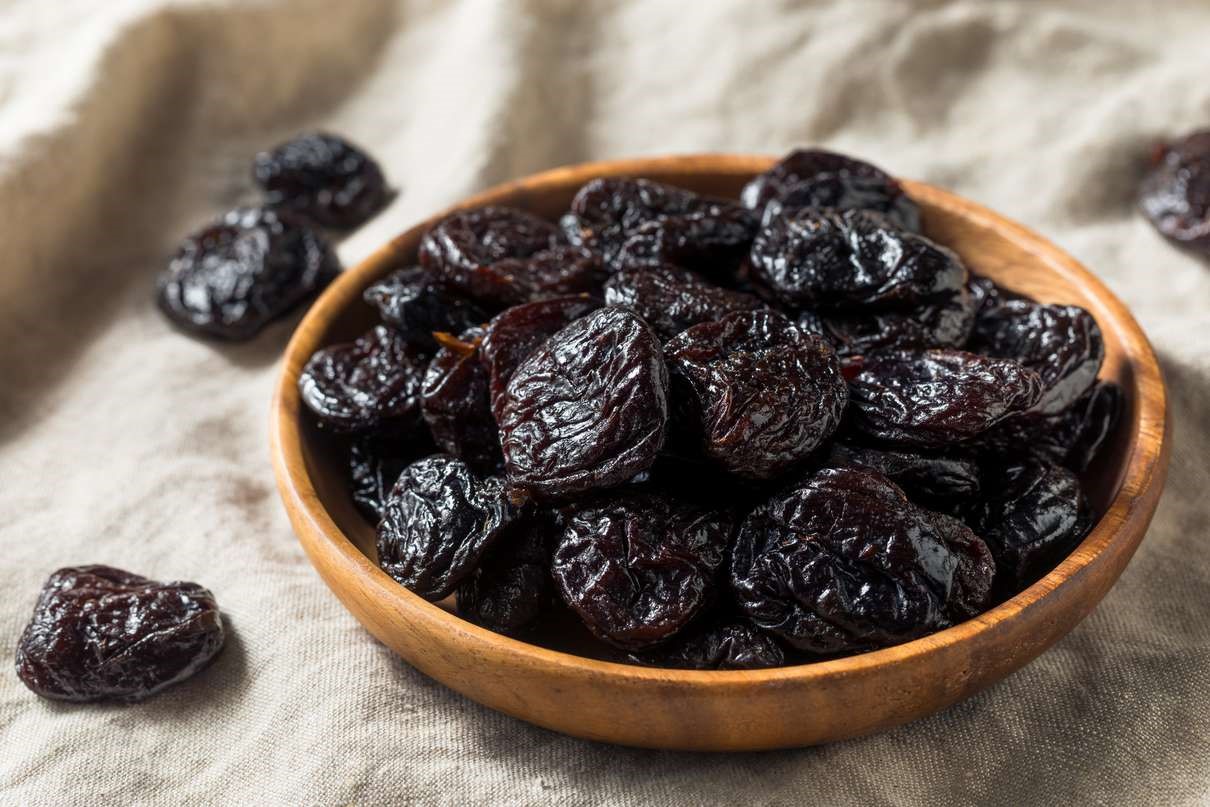 image source: What Are Prunes?
image source: What Are Prunes?
who couldn’t use a little more fiber?
If you haven't already visited our Poetry Friday host this week, please visit Kats Whiskers and enjoy Kat's delightfully entertaining cats-and-dogs poem!
- Details
- Written by: Tracey Kiff-Judson
- Category: Blog
Thank you to Carol Labuzzetta for her wonderful holiday gift exchange. She went above and beyond, especially given the current constraints on her time. I can’t express enough gratitude for Carol’s generosity and support over the past year. She was so thoughtful and kind in publishing several of my poems in her anthology, Picture Perfect Poetry. From the bottom of my heart, thank you, Carol, for your friendship and kindness!
I would like to share with you, dear reader, the gifts that Carol shared with me. First, an aurora borealis haiku and photo:

mistletoe kisses
sent by a colorful sky
one friendly exchange
© Carol Labuzzetta, 2024
In keeping with the “mistletoe kisses” theme, Carol sent this ADORABLE ornament, which I absolutely love and promptly hung in our living room.
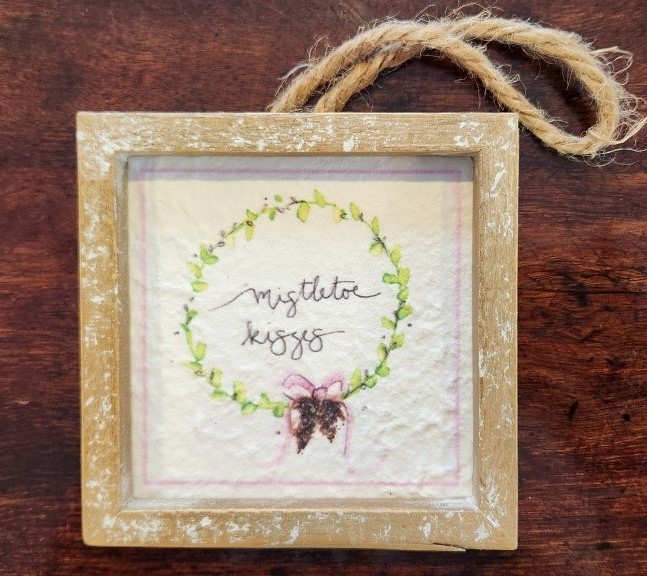
But, Carol did not stop there! She also sent a package of notecards displaying her keen eye for nature photography.
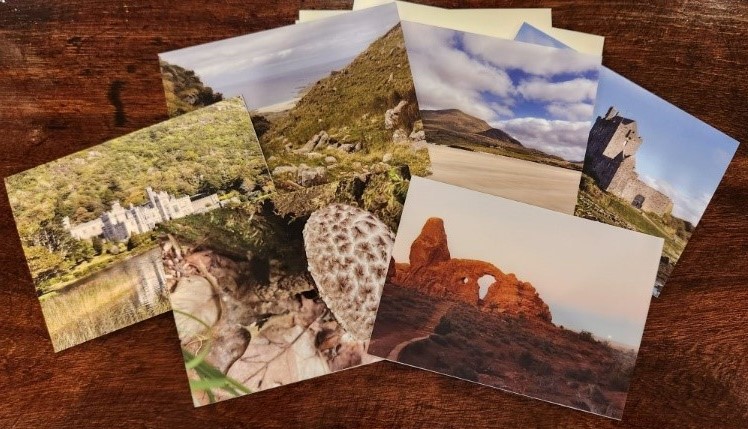
And … these spunky earrings!

She is truly too much! Thank you again for your kindness in this exchange, but also for all the goodness you send forth into the universe., Carol! Wishing Carol and the Poetry Friday community a wonderful new year filled with joy!
Please visit the talented and artistic Michelle Kogan at More Art 4 All for this week’s Poetry Friday roundup and a bit of year-end cheer.
- Details
- Written by: Tracey Kiff-Judson
- Category: Blog
Happy Poetry Friday! Thank you to my friend, Jone Rush MacCulloch for hosting this week. Please swing by Jone’s site for a cup of hot-cocoa-warm-poetry-goodness and the roundup!
The shorter days this time of year always encourage me to reflect, and so, I have been thinking about how grateful I am for the people in Poetry Friday circles and the broader children’s literature community over the past year.
I would like to thank all the Poetry Friday bloggers for this kind, safe place to share. Even if a piece is not perfect, you all see the sentiment behind the words and offer only encouragement and kindness. In particular, I’m sending a shout out to Irene Latham for her thoughtful support throughout this year. Thank you, Irene!
I am also thankful for the critique partners that I have worked with throughout 2024. Our relationships have grown closer and more trusting. Your insights and constructive feedback continue to impress me, and I hope to support you as much as you have uplifted me.
I would also like to thank Donna Smith, my Poetry Friday Holiday Buddy, for her thoughtful gifts. She sent me her seasonal artwork and poem that made me want to run out and build a snowman! Her snowpersons, bedecked in scarves and mittens, party it up as their shadows stretch in the moonlight. I loved this line in her poem: and if they want another friend, they roll a new snowbeing! : )
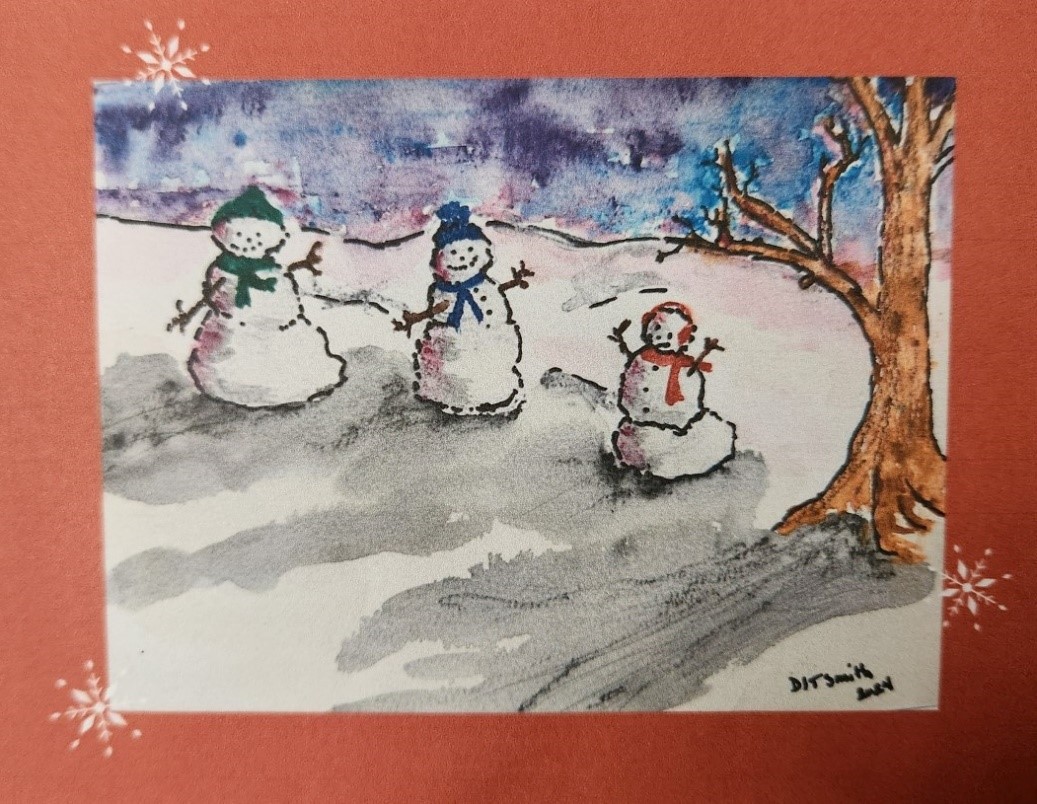

But that’s not all! Donna also sent me a handmade necklace with three pendants: a flower, a heart, and the single word – IMAGINE. That felt so apropos! Sometimes when I write, I get bogged down in the “rules,” and the necklace from Donna felt like an invitation to let go and imagine what could be. Thank you so much, Donna!


Poetry Friends
When
the world
overwhelms …
a gentle poem,
a piece of art,
a thoughtful comment
make all the difference.
© Tracey Kiff-Judson, 2024
Happy Hoildays!
- Details
- Written by: Tracey Kiff-Judson
- Category: Blog
Happy All Saints’ Day and Poetry Friday!
Surprisingly few trick-or-treaters graced our front porch last night, but those that did were adorable – from the giant, blow-up dinosaur stumbling up the street to the tiniest ghostbuster holding his mom’s comforting hand.
I thought I might share my Halloweensie Contest entry here. To checkout many more Halloween-themed poems and stories (all under 100 words) click here. My poem was originally three times the length, so I had to cut out quite a bit of backstory. Goblin, chill, and tiptoe are required words. Here is the short version (drawing not included with the entry).
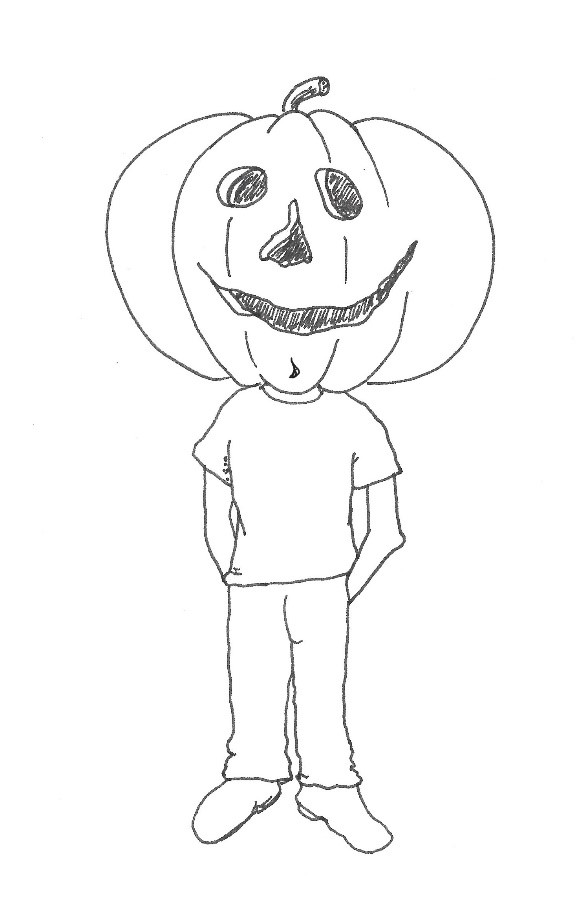
Paxton Maxton Mumpledread
Paxton Maxton Mumpledread,
carved a pumpkin for his head:
kooky eyes, a goblin grin,
a crooked nose, a dimpled chin.
He slipped it on, and he was chillin’ –
dressed up like a silly villain.
Paxton tiptoed off to school,
where pumpkin-heads broke every rule.
“Paxton’s lost his head,” they said.
“His brain is stuffed with pumpkin bread!”
As tears spilled down his cheeks inside,
he felt relieved that he could hide.
And so, he wears his pumpkin heads,
a shield against the world he dreads,
and no one knows if Paxton’s sad,
afraid, embarrassed, or…
gone mad!
Poem and Drawing © Tracey Kiff-Judson 2024
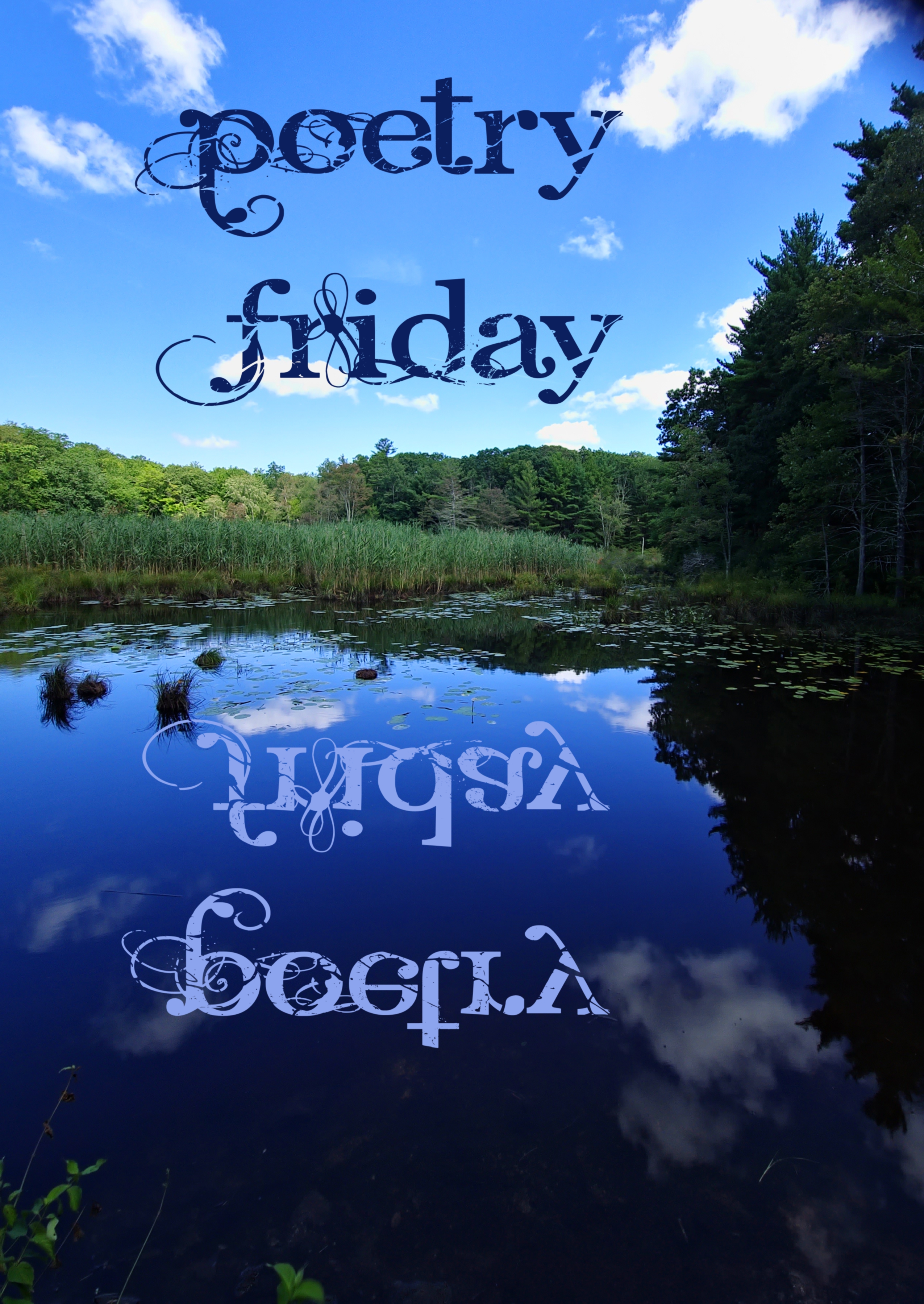
For more Poetry Friday, please visit my friend, Patrica Franz here to learn about All Soul’s Day and coping with grief.
- Details
- Written by: Tracey Kiff-Judson
- Category: Blog
I usually hesitate to write seasonal poetry, but today, the maple outside my window is such a flaming orange, that I couldn’t resist. It truly looks like it's on fire. Regretfully, the pictures don’t capture the vibrancy of the light dancing with the leaves.
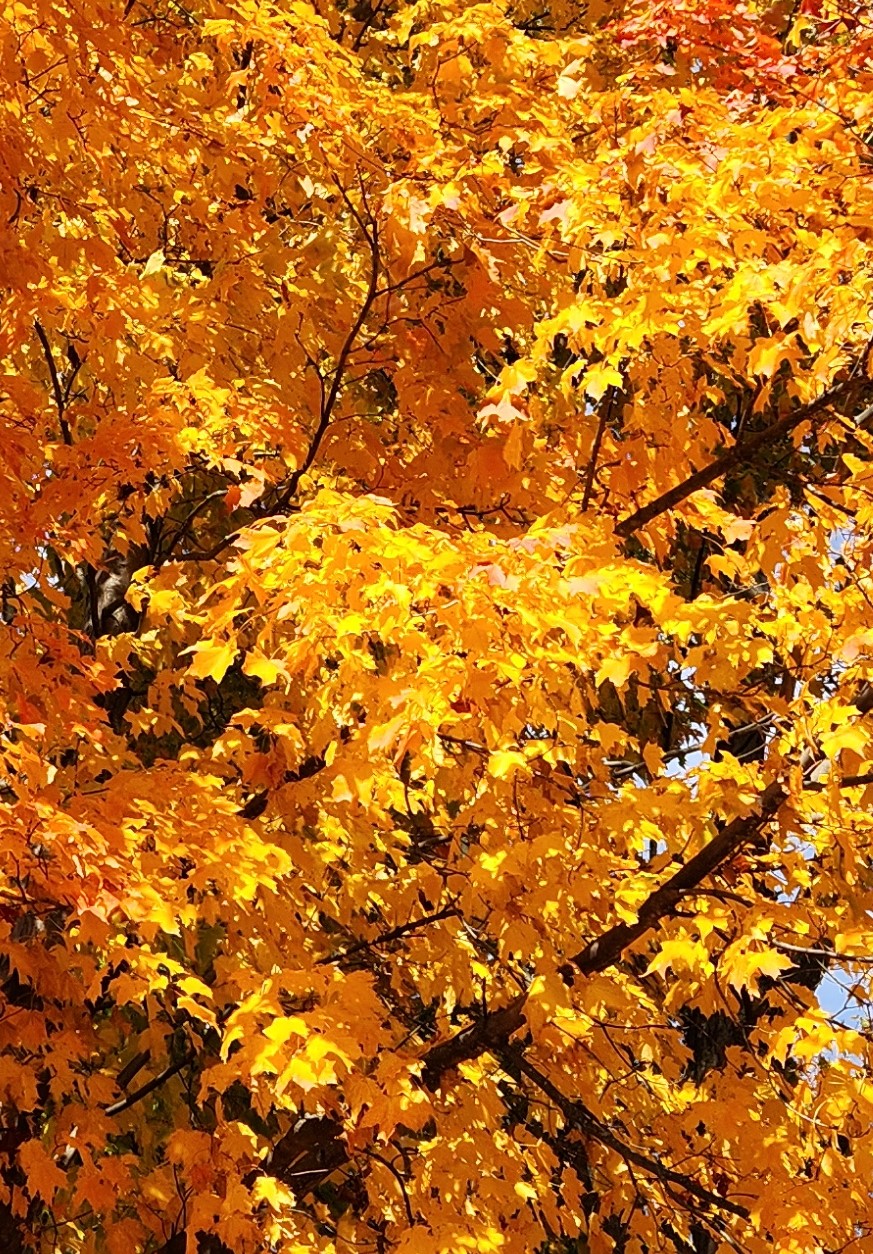
The topic of fire is timely because for the first time in my memory, there are forest fires in two neighboring towns. Forest fires don’t often occur in Connecticut, but it has been extremely dry here. While floodwaters engulf other parts of the country, here lawns brown, trees wither, and reservoirs dwindle. This mud and rock island in a nearby reservoir is normally deep underwater, but today, geese rest on their way south.
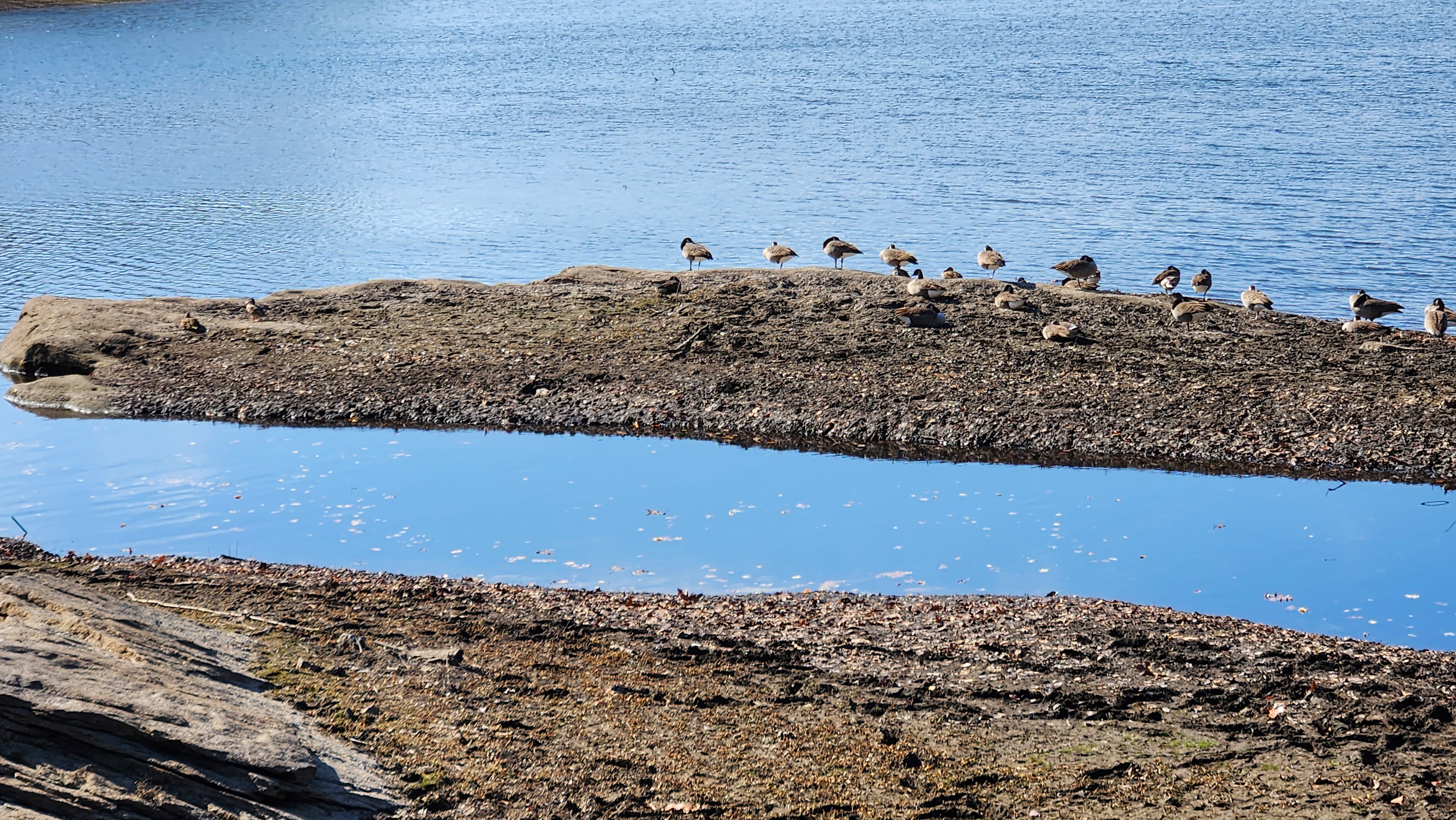
Somehow, these two intertwined maples outside my window defy the odds and refuse to dry up, bursting with stunning color.
fire falls from maples
lit tissues spiraling down
igniting the ground
© Tracey Kiff-Judson, 2024

Please visit the charming Carol Varsalona at Beyond LiteracyLink for this week’s Poetry Friday roundup and her thoughts on Awe-Inspiring Autumn!
- Details
- Written by: Tracey Kiff-Judson
- Category: Blog
Greetings from New England on this chilly Poetry Friday!

Please visit our clever and creative host Jama Rattigan at Jama’s Alphabet Soup for a doughnut, a recipe, and bit of poetry!
Last week, we visited the New England Botanical Garden at Tower Hill outside of Boston. There were lots of magical sights: a trail with fairy lights and fairy houses, fountains topped with wispy strips of sailcloth, and stick spirals in the woods.
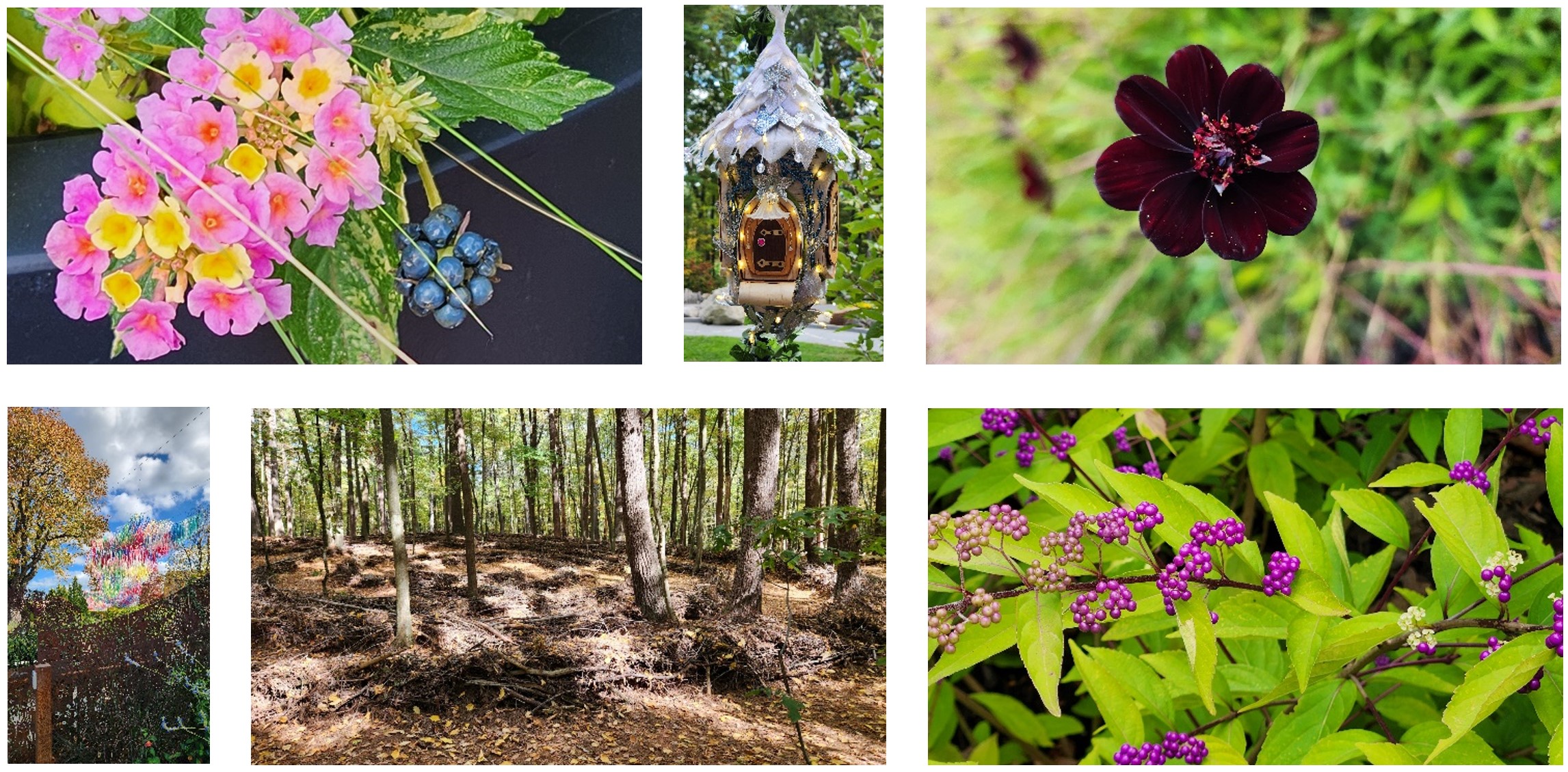
But perhaps my favorite sight was this tiny frog floating in a fountain.
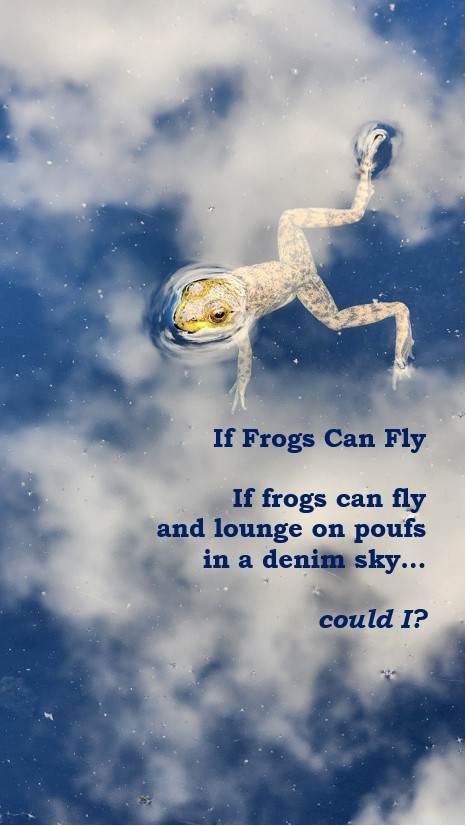
If Frogs Can Fly
If frogs can fly
and lounge on poufs
in a denim sky…
could I?
© Tracey Kiff-Judson
- Details
- Written by: Tracey Kiff-Judson
- Category: Blog
A huge thank you to the friend-of-every-poet, and a truly kind soul, Irene Latham for hosting this week! Please visit Live Your Poem to enjoy some of Irene’s gorgeous ArtSpeak poetry and the weekly roundup.
Thank you to Linda Baie for inviting us to join the #PoetryPals September Poetry Challenge. Here’s Linda’s description:
We’re wandering through Wallace Stevens’ “13 Different Ways of Looking…” at something. Maybe it’s not 13 ways – maybe it’s only seven. Maybe it’s not a blackbird or anything alive, but something inanimate. Whatever happens, your way of looking will be different than mine, and I’m here for it. Are you in? Good!
While sitting at my desk pondering this wonderful challenge, the first thing that caught my eye was my big toe!

88 Fashionable Toe Nail Designs to Try in 2024 in 2024 – NailDesignCode
Note: None of these are my toes. That felt too weird to post, although, posting other people’s toes is probably also rather weird…
Anywho, thirteen things! Well, there aren’t many similarities between my poem and “Thirteen Ways of Looking at a Blackbird” by Wallace Stevens. His poem was more insightful and poetic, more clearly formatted, and perhaps based upon a better topic! : /
But I had fun!
The Big Toe
I support this whole operation:
balance queen,
head of the household,
first in line for a swift kick.
You say I take more
than my share
of shoe space?
Maybe I am a
polish hog,
but I can’t help if I’m
big boned.
Besides, I’m only a
little piggy …
when I go to market.
Even though
my head
sticks out farthest,
I’m stubbed far less
than my smaller siblings.
They tend to
cut
corners.
I’m a born leader.
I move independently.
Sure, I’m a bit
calloused,
but who doesn’t
have a few
rough edges?
I work proficiently
and silently,
unlike that
high-and-mighty thumb.
What’s so great
about being opposable
anyway?
You can count on me.
I’m a steadfast,
often-neglected-yet-vital
phalange.
© Tracey Kiff-Judson, 2024
Wishing you a toe-tally Happy Poetry Friday!
- Details
- Written by: Tracey Kiff-Judson
- Category: Blog
Happy Poetry Friday!

Thank you to Linda for hosting this week’s roundup! Please visit her at Teacher Dance to check out her lovely summer look-back poem as well as all the other Poetry Friday posts.
Have you ever tasted a food and transported to another time and place? Just the thought of eating a candy apple takes me back to strolling around the county fair with sticky hands and red cheeks.
Yesterday, I was in a small market in Massachusetts with my son, and we came across baskets of wild black raspberries. Of course, I had to buy some. There were also boxes of Concord grapes. We needed some of those too.
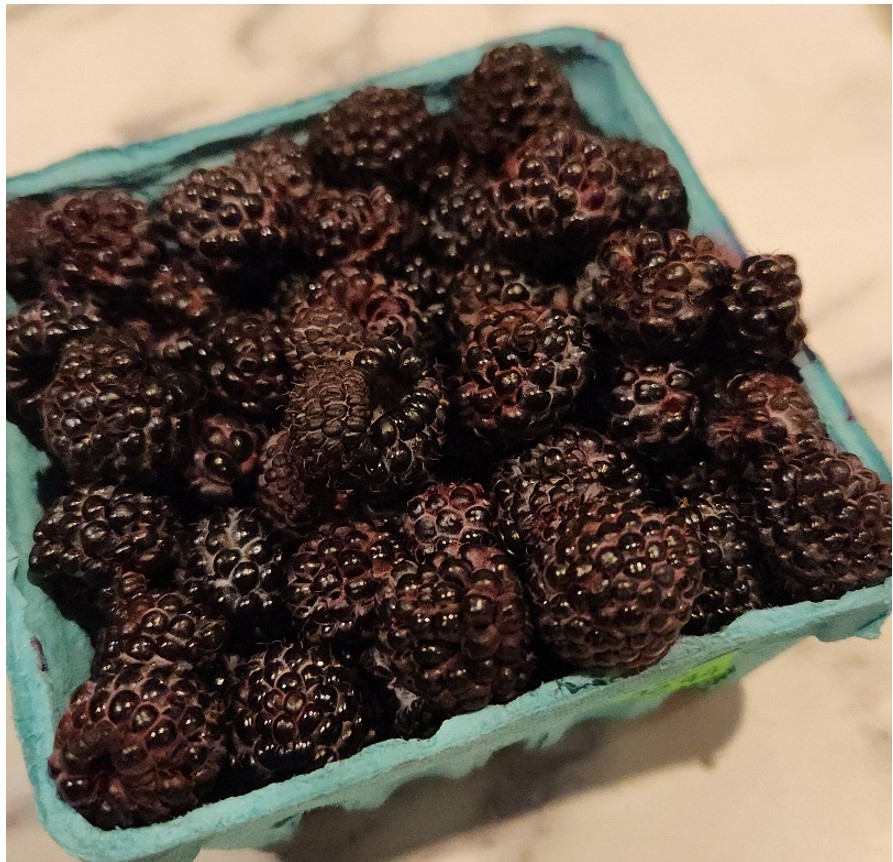
As we were walking out of the store a couple berries fell on the ground. Not wanting to waste a memory, I scooped them up, dusted them off, and popped them into my mouth. My son and husband laughed when I said, “Tastes like being a kid.”
Growing up in Western NY State, I spent my summers with my cousin. An unruly, black raspberry patch sprawled behind my house. We hid in that berry patch for hours eating sun-warmed berries, getting scratched by inch-long prickers, and picking fruit for my older sister to bake us a pie.
If you’ve ever eaten wild black raspberries, you know that the seeds are disproportionally large and hard compared to blackberries, and the flavor is a bit … muskier? Black raspberry pies are dry and more seed than fruit ... but, I can’t get enough. Black raspberries are part of my soul.
The same goes for Concord grapes. We grew up in the NYS Finger Lake Region – wine country. Wine is fine, but … the grapes are where the magic lives. There is a technique to eating Concord grapes – if want a pleasant experience. I am going to share this technique with you, in confidence.
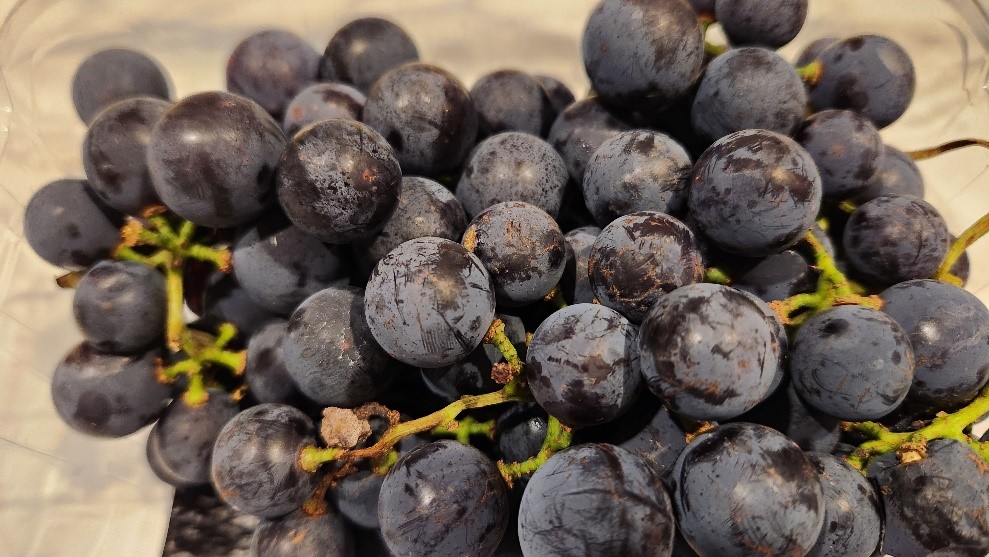
You pick a grape and squeeze it into your mouth until the pulp and juice empty from its skin. You let the clear, sweet juice trickle across your tongue and the pulp slide down your throat. Do not chew! If you bite down, very sour juice from inside the pulp will escape, and you will have to contend with two large, crunchy seeds.
What happens next is the subject of much controversy: eat or toss the skin? I toss ‘em, but my cousin always swore by eating the skins. They aren’t bad, just not as delicious as the sublime juice and slippery pulp. Nowadays, I bake the skins into quick bread where they masquerade as blueberries.
Concords
Sunbaked
grapes
plucked
and sucked
release
the
flavor
of
childhood.
© Tracey Kiff-Judson
If you can find Concord grapes – here is a recipe to try with the skins. It is rather dense, but quite tasty!
